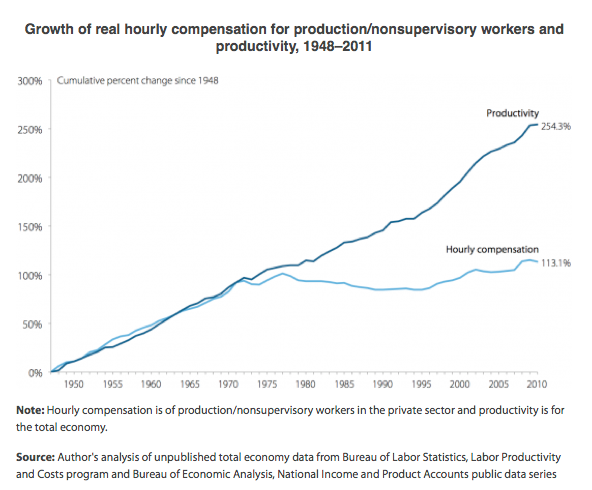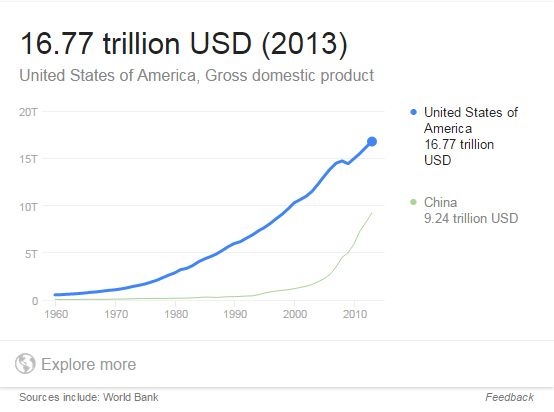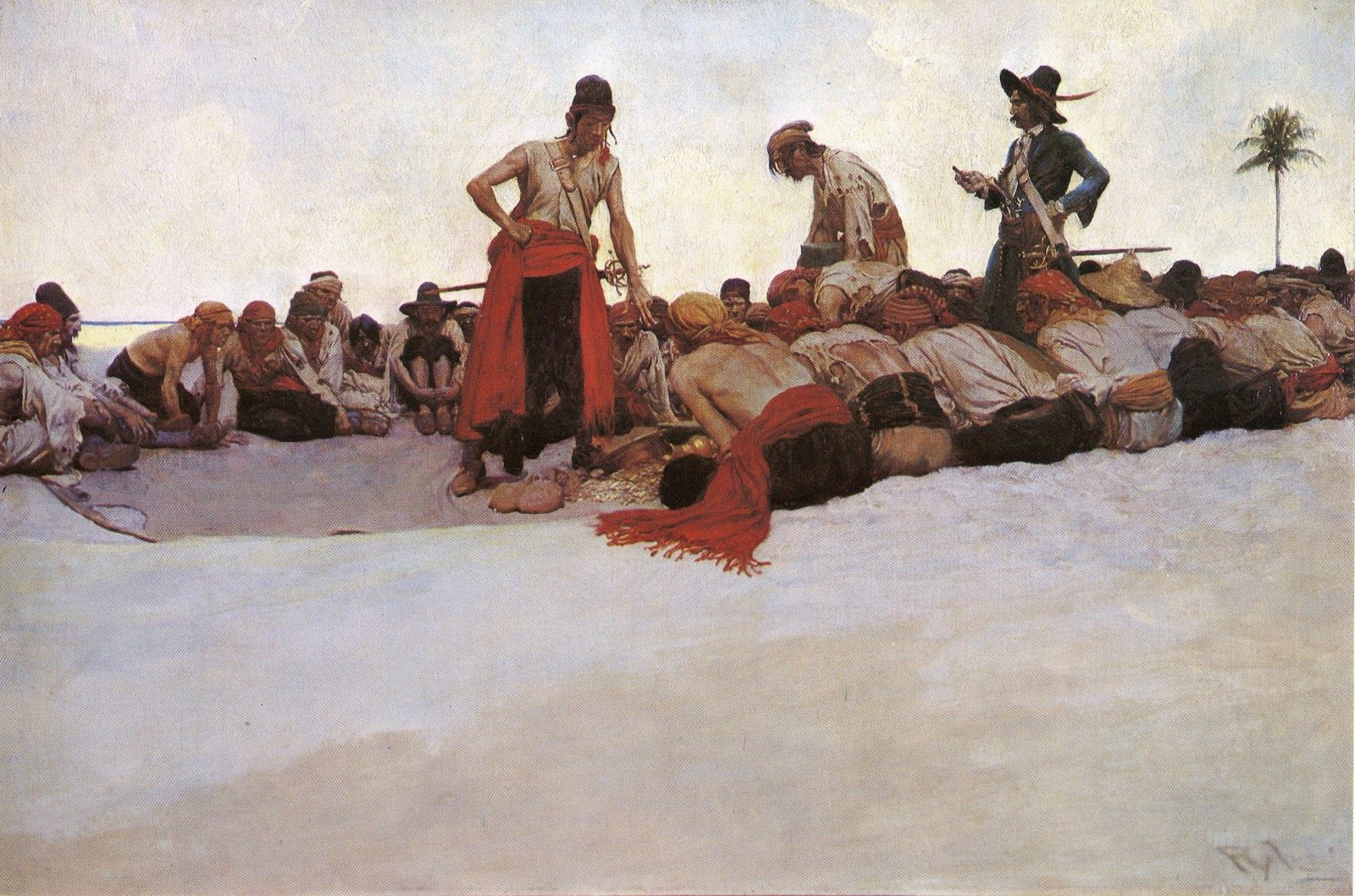Inequality: Joseph Stiglitz Brilliant Reflection On Obama's State Of The Union Address
"Of The 1%, By The 1%, For The 1%,"
Nobel Laureate Joseph Stiglitz
"Of The 1%, By The 1%, For The 1%,"
Nobel Laureate Joseph Stiglitz
"Plutocracy Triumphant"
Cartoon Compendium
It's Not About Income. "It's About Net Worth, Stupid!"
It's Not About Income. "It's About Net Worth, Stupid!"
"Politics And Economics: The 101 Courses You Wish You Had"
"Politics And Economics: The 101 Courses You Wish You Had"
"Pope Francis Links"
"Pope Francis Links"
In 2013, the gross domestic product of the United States was 16.77 trillion dollars. That’s roughly $140,000 per each employed person in our country.
That is, if you break this down per person, each of us produced $140,000 in goods.
Yet most people only see a small percentage of this in their wages. The median wage in the United States was $27,851 in 2013 (median wage is a better measure of how the average American is doing because a few extremely wealthy people at the top skew the average). This means 50% of working adults make $27,851 or less each year.
If each of us made half of what we produced the median salary would be $70,000. Now clearly there's other costs involved, still why aren't people paid more?
Why do so many jobs pay so little?
Christopher Jencks, professor of social policy at Harvard, says it’s really quite simple.
In an article called “Why do so many jobs pay so badly?” for David Cay Johnston’s bookDivided: The Perils of our Growing Economy, Jencks writes:
A market economy is not designed to ensure that workers get paid what other people think they deserve. The logic of the market is that we should all be paid the smallest amount that makes sure our work gets done, and that is what low-wage workers generally receive.The logic of the market is not to pay people what they deserve. It's not to pay people what would make a better life for them. It's to pay the absolute minimum that you can get away with.
American economists and business leaders have long argued that the way to improve low-income workers’ standard of living is to grow the economy. This worked for a while after World War II. However, since the early to mid-70s, productivity and national income have increased, but wages haven’t.
Between 1940 and the mid-1970s, growth and wages matched each other. Since the mid-1970s, however, the economy has grown and wages haven’t.

American Dimwits: Still waiting for "The Job Creators" to shower them with riches
What’s the difference between these two time periods?
Why are the benefits of growth sometimes widely shared and sometimes not?
Some of the causes commonly cited include globalization, computerization, and educational skill deficits.
Some of the causes commonly cited include globalization, computerization, and educational skill deficits.
A helpful way to look at the issue of inequality is to look at other wealthy, industrialized nations and compare what’s similar and what’s different. The Luxembourg Income Study(LIS) has data going back to the 1970s on the United States, Great Britain, Canada, France, Germany and Sweden and data going back to the 1980s on many other countries.
Today, the United States is by far the most unequal rich democracy in the world.
Globalization has impacted all of these countries, some even more than the United States, yet many have stable income distributions while the U.S. has grown much more unequal.
Globalization has impacted all of these countries, some even more than the United States, yet many have stable income distributions while the U.S. has grown much more unequal.
There are some studies, such as the International Adult Literacy Survey that suggest educational inequality in America is greater than in the European countries and Canada. However, the differences as slight compared to inequality difference between the U.S. and these other countries.
The difference in the level of computer skills between poor and wealthy is suggested as another alternative. However, if this were the case we should see the same levels of inequality in other countries with similar distributions of skills. We don’t.
So what is it?
Jencks writes that basically it comes down to politics:
Economic inequality is less pronounced in countries where the constitutional system has few veto points, allowing the government of the day to make fundamental changes. Rules that favor a multi-party system rather than a two-party system also produce more equal economic outcomes. So does proportional representation. Such arrangements apparently make it more likely that a ruling coalition will seek to protect labor unions, raise the minimum wage, and centralize wage negotiations, all of which tend to reduce income inequality.It's too easy to buy our politicians. Politicians know they need money to win elections and the quickest way to get this money is to appeal to corporate special interest groups.
In exchange, corporate special interest groups receive tax breaks, less oversight, laws designed to break unions, and policies that favor their industry.
In almost every line of business, there are a number of choices that executives can make when it comes to remaining competitive.
Companies can take the low road and choose to squeeze workers by cutting benefits and aggressively fighting to drive down wages. WalMart takes this approach.
Or companies can choose to pay workers more and innovate in other ways. CostCo, WalMart’s competitor, pays workers an average 70% more than WalMart and still manages to stay competitive. 82% of workers at CostCo have benefits compared with less than half at WalMart. As a result, CostCo's workforce is much more loyal and less likely to leave. CostCo sees 17% overall turnover compared to 44% for WalMart. Continually having to hire and train new employees is its own form of overhead.
The point Jencks makes in his article is that companies are more likely to choose the high road if there are unionized workers who can make abusing workers most costly.
According to Jencks, a populist political party and an active media would also help:
The pro-market consensus also reflects the influence of journalists and political pundits, most of whom seem to be even more skeptical of government than about private enterprise or the current influence of the business elite. This consensus owes something to the absence of a political party that questions it. The absence of such a party derives from rules that make third parties extremely difficult to organize and from a system of campaign finance that makes every party dependent on rich contributors.Corporate media largely supports corporate special interest group policies: lower wages, less benefits, paying less in taxes, and a culture that puts more pressure on people to work longer and harder for less money.
What would change this?
If America wants better pay, there needs to be a better balance between workers and owners. Right now, our political system and our media work for owners, and not typically owners of small businesses or even medium-sized business, but owners of the largest companies in America and their special interest groups like the U.S. Chamber of Commerce.
Things that would even the negotiation positions and put upwards pressure on wages:
- Unions
- Breaking up monopolies (like the banking system and cable companies, for example)
- Government investment in infrastructure and research to stimulate the economy
- Taxing income from capital at the same rate as wage income (reinvest this money in infrastructure and research)
- Laws and enforceable penalties to protect consumers and workers (not just owners)
- Increases to the minimum wage
This would ensure we have an economy that works for everyone (not just a few). To do this, we need populists in government.
Here’s the question then, how do we elect populists when candidates from our two parties are competing for campaign cash?
We all know what’s needed: campaign finance reform and getting the money out of politics. One way or another.
How do you convince people?
One of the issues is that campaign finance reform is boring and people have a hard time seeing how this would affect their day-to-day lives.
Bring up campaign finance reform and watch your friends eyes dart around the room looking for an escape. No one but the wonkiest of the wonky (like most of us here ... heheh) cares about something called campaign finance reform. It sounds like going to the dentist.
Instead try asking a question like: Why are people paid so poorly in America?
This will turn a few heads. Poorly? Who is paid poorly?
Here’s where some of the above statistics and story help. Talk about how we're the richest country in the world with the greatest inequality.
Why does the richest country in the world have so many poor people? Talk about what the average person produces compared to what they make. Should only a few people benefit from America? Why are other countries so different?
People may feel attacked. They may feel as if you arguing to take from some and give to others. This is how the opposition has framed the debate.
If the United States were a pirate ship and you managed to win 1,000 gold coins. Imagine there were 40 crew members. How should the money be divvied up? What should the investor who funded the the voyage receive? What would be fair?
In 2010, the top 1% had 35.4% of the wealth in the United States. The next 19% had 52.5%. The bottom 80% had 11.1%. In pirate terms this means the bottom 80% or 32 lowest ranking crew members would split 111 gold coins. This is roughly 4 coins apiece. Or more likely more coins for those at the top and a coin or less apiece for the lowest ranks. The investor who funded the ship would receive 354 gold coins. And the top 8 ranking officers would split 535 gold coins, or roughly 70 gold coins each.
Remember, consumers make up roughly 70% of spending in the United States. If people were paid better, this would create more demand which in turn would help the economy.
I like to ask: Weren't we all better off when more people made more money?





No comments:
Post a Comment